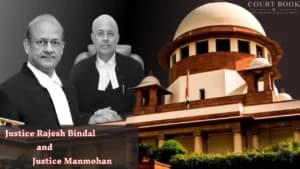On Wednesday, February 12, 2025, the Supreme Court delivered a significant judgment, granting bail to an accused in a money laundering case under the Prevention of Money Laundering Act (PMLA). The decision came after the High Court quashed the order taking cognizance of the complaint filed by the Enforcement Directorate (ED).
A bench comprising Justice Abhay S. Oka and Justice Ujjal Bhuyan was hearing the case of Arun Kumar Tripathi, an Indian Telecommunications Service Officer, who was arrested by ED on August 8, 2024, in connection with the Chhattisgarh liquor scam.
"If the cognizance order has been quashed, why should the accused remain in jail?" – Justice Abhay S. Oka
The ED filed a supplementary prosecution complaint against Tripathi on October 5, 2024, and on the same day, the Special PMLA Court took cognizance of the complaint. However, on February 7, 2025, the High Court quashed this order, stating that the required sanction for prosecution had not been obtained.
Read Also:- Supreme Court Rules That Grandparents Cannot Have a Superior Claim Over Father for Child Custody
The Supreme Court strongly questioned why the ED continued to keep the accused in custody even after the cognizance order was quashed.
"The purpose of PMLA is not to keep a person in jail unnecessarily. If the tendency is to keep an accused in jail even after cognizance is quashed, then what can be said? Look at what happened with Section 498A IPC—now is PMLA being misused in a similar way?" – Justice Abhay S. Oka
Defending its actions, Additional Solicitor General (ASG) S.V. Raju argued that quashing the cognizance order did not make the arrest illegal. He further claimed that the sanction had now been obtained, and the ED had already applied for fresh cognizance based on this approval.
However, the Supreme Court was displeased that ED did not disclose the fact that the High Court had quashed the cognizance order until the defense lawyer brought it to their attention.
Read Also:- Workplace Reprimand for Official Duties Not a Criminal Offense Under IPC Section 504: Supreme Court
"It is shocking that the ED knew that cognizance was quashed, yet it was suppressed from the court. After five questions, we were informed about this. Should we summon the officers? ED must be transparent." – Justice Abhay S. Oka
ASG Raju further argued that the requirement for prior sanction was established in the Supreme Court’s ruling in the Bibhu Prasad Acharya case last year, and several complaints had been filed before that judgment without obtaining sanction.
"Crooks cannot escape on technicalities. These are officers who ran a parallel liquor business and siphoned money to Dubai." – ASG S.V. Raju
However, Justice Ujjal Bhuyan promptly responded, "The accused has not been convicted yet."
Read Also:- No Fixed Rule for Half Sentence Requirement for Bail During Appeal: Supreme Court
The Supreme Court ruled that as of now, the prosecution complaint does not legally exist.
"As of today, the complaint filed on October 5, 2024, is not in existence because the order taking cognizance has been quashed. The respondent (ED) acted upon the High Court's order by applying for fresh cognizance based on the newly obtained sanction. Now, the Special Court will have to examine whether the sanction is valid."
The Court then granted bail to the accused with strict conditions, directing him to appear before the Special Court within one week. The conditions include:
- Surrendering his passport
- Regularly attending court hearings
Considering the serious nature of allegations, the Supreme Court also clarified that the Special Court could impose stringent bail conditions.














